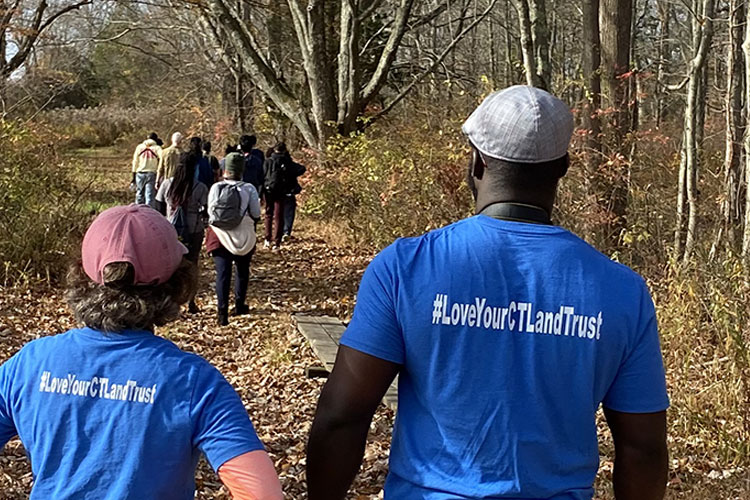Awards 2020
2020 Awards for Excellence in Land Conservation
We are proud to celebrate and feature our winners for our annual Awards for Excellence in Land Conservation. In making these awards, CLCC seeks to recognize organizations and individuals who have made a substantive contribution to the ongoing success of land conservation in our state and projects that may serve as a guide to or be replicable by other land trusts and conservation organizations in Connecticut.
Excellence in Conservation Organization Award
UConn Natural Resources Conservation Academy (NRCA)
For the past 7 years, UConn’s Natural Resources Conservation Academy (NRCA) team has been empowering teens, adult volunteers, undergraduate & graduate students, and teachers statewide by providing professional development & leadership opportunities and supporting participant-led community conservation efforts. Through NRCA participants’ collective efforts, the Academy has provided a direct assist to land conservation work statewide and helped foster the next generation of environmental stewards.
A Unique Partnership: The NRCA team is a cross-campus partnership among faculty members from the Department of Natural Resources & the Environment, Center for Land Use Education & Research, Center for Environmental Sciences & Engineering, Institute of the Environment, and Neag School of Education.
Program Description: The NRCA challenges traditional models of leadership, increases innovation and capacity to implement environmental solutions, and crosses age and ability boundaries to develop a more inclusive and equitable environmental sector. The NRCA (http://nrca.uconn.edu/) comprises innovative conservation programs that engage teens, adult volunteers, and teachers in natural resource science and geospatial technology. Moreover, the NRCA provides engaged leadership opportunities for undergraduate and graduate students to mentor NRCA participants. Below are brief descriptions of each of the four programs.
The foundational NRCA program, Conservation Ambassador Program (CAP), brings teens from throughout Connecticut to UConn for a week-long intensive summer field experience. The field experience—led by UConn graduate students and faculty—immerses teens in activities covering a range of environmental topics, providing them with knowledge and tools used by professionals to address current environmental issues. CAP students return home to partner with a community organization on a 10-month collaborative conservation project. Students present their work at the Connecticut Conference on Natural Resources, where they are recognized as Connecticut Conservation Ambassadors.
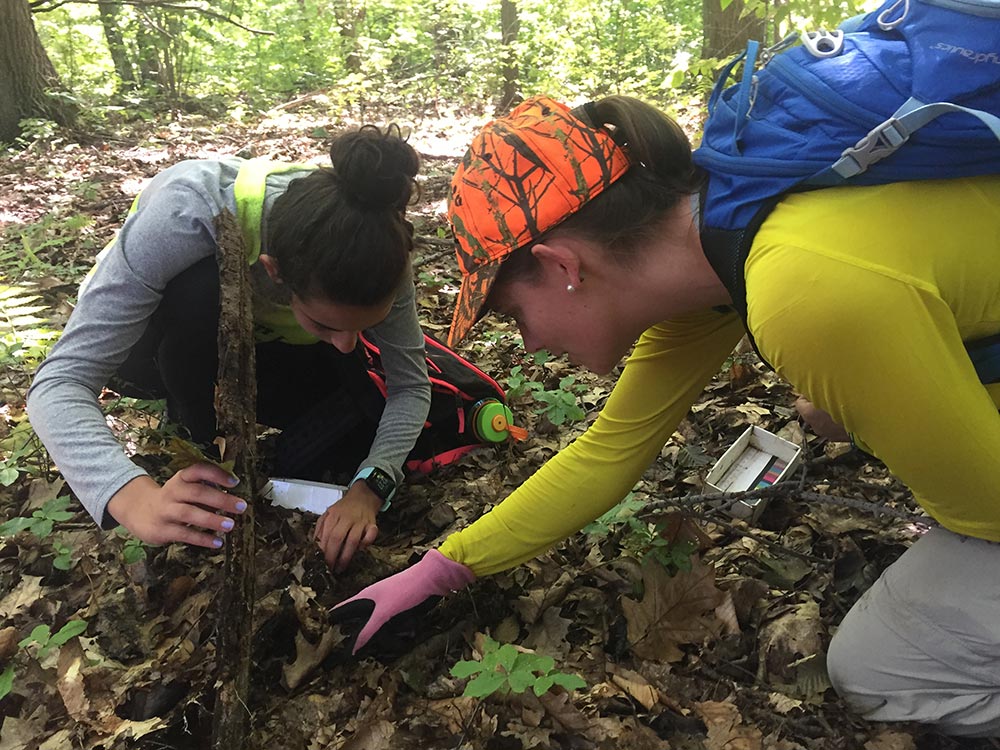
NRCA Conservation Ambassador Program, Evelyn Marchand (CAP participant) with her community partner Annette Evans (UConn Ecology & Evolutionary Biology). © A. Cabaniss, UConn NRCA
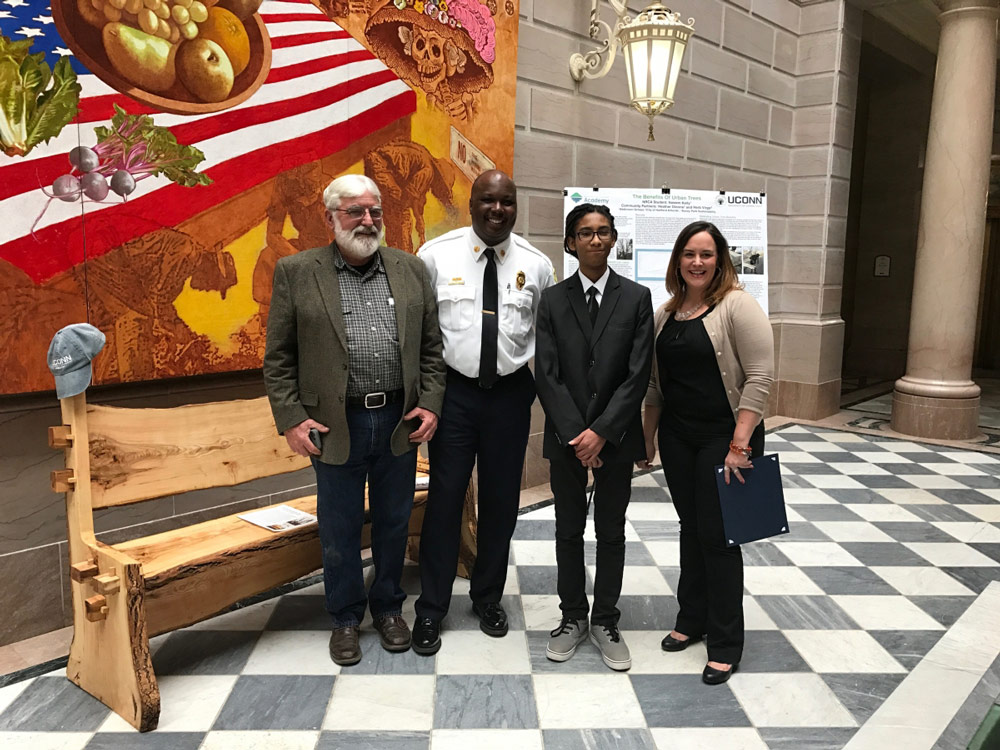
NRCA Conservation Training Partnerships & Conservation Ambassador Program, Naieem Kelly (CTP & CAP participant) with his community partners Tom Worthley (UConn Extension) and Heather Dionne (City of Hartford Arborist). © L. Cisneros, UConn NRCA
Conservation Training Partnerships (CTP) program is a mini, mobile version of CAP. CTP moves around the state for two-day trainings of teen-adult teams drawn from local conservation groups and nearby high schools. In an intensive two days, CTP teaches them about smart phone mapping technology and their use in conservation. CTP instructors then help the teams design local conservation projects that they carry out after the workshop. CTP teams showcase their environmental efforts at statewide conferences including the Connecticut Land Conservation Conference.
Although the 2020 Conference was postponed due to the COVID-19 pandemic, the NRCA team organized a virtual conference to provide the students and their partners with an opportunity to present their projects. You can read more about the virtual event and access links to all of the presentation posters and recordings here: https://blog.nrca.uconn.edu/2020/03/25/fevcc/
Teacher Professional Learning (TPL) program is a three-day workshop for secondary science teachers. The workshop is built on the framework of the Next Generation Science Standards. Participants explore the relationship of land use to water resource health and gain online tools to study these issues further. Participants leave with a host of resources, including a Water Sustainability Curriculum.
Difference Makers program engages NRCA alumni who are currently UConn undergraduate students. Difference Maker interns return to the Academy to help foster the NRCA experience for current students. Differences Makers help facilitate NRCA workshops or field experiences, contribute to NRCA science communication, and develop materials to support current participants.
Impact: The NRCA has been exceedingly successful at fostering the next generation of environmental stewards, and building capacity to develop and implement projects that have lasting environmental and community benefits.
To date, the NRCA has worked with 405 teens, adult volunteers and teachers from 123 high schools, 138 community organizations (many of which are land trusts and conservation commissions), and 125 towns (see map). Among our students, 38% have identified as an underrepresented ethnicity/race and 63% have identified as an underrepresented gender. Participants’ enthusiasm for the environment, science and contributing to community efforts is evident following the programs, and exemplified by participant testimonies and evaluation responses (see below).
Collectively, 232 community conservation projects have been carried out by NRCA teen-adult teams. These citizen-led efforts have contributed significantly and positively to environmental impacts, development of community assets, and gains in social capital. Examples of benefits from 167 completed NRCA projects are:
- 2,720 additional community volunteers engaged
- 24 projects made meaningful scientific contributions
- 233 unique teen-adult community partnerships formed
- 49 educational & community service events
- 185 unique properties assessed, 21 of which were restored
- 27 participant-developed programs or proposed management plans
- 18 projects contributed to long-term science programs
- 115 physical structures or other resources created
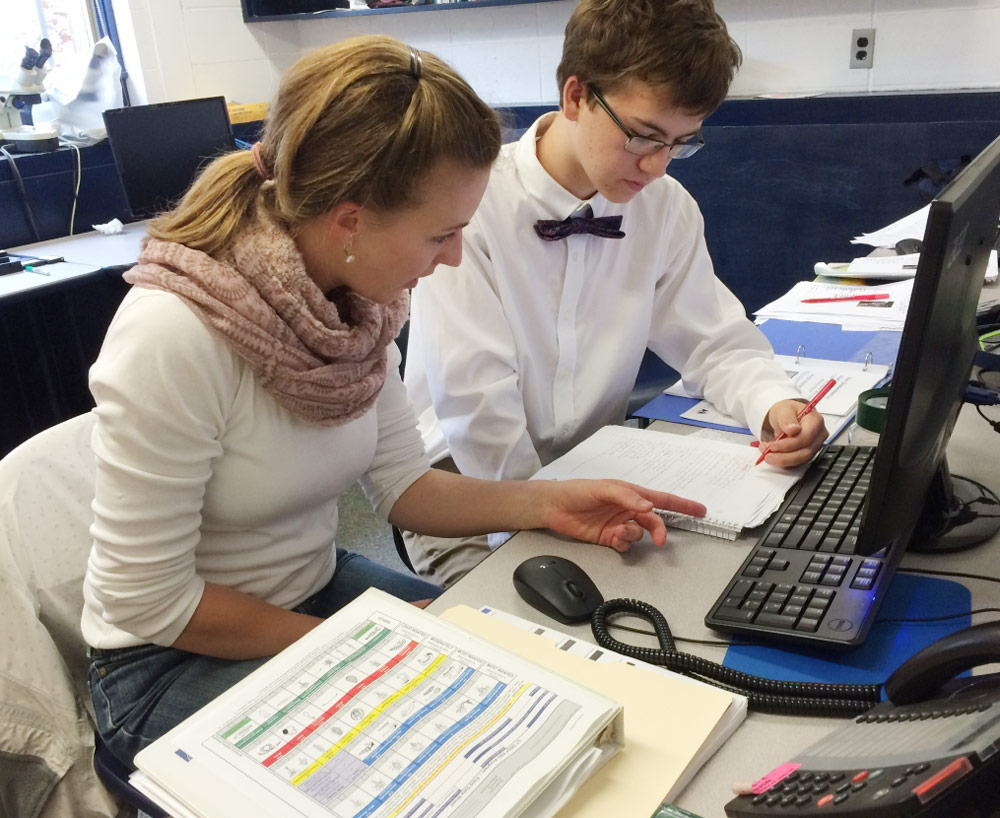
NRCA Conservation Ambassador Program, Jacob Renkert (CAP participant) with his community partner Meghan Lally (CT DEEP). © L. Doss, Marvelwood
With over 130 CT land trusts and each of the 169 municipalities having a conservation commission, Connecticut has a long history of local conservation by volunteers. NRCA projects have proven to directly assist these efforts. See the NRCA Conservation Project Story Map (http://s.uconn.edu/nrcastorymap) to learn how NRCA participants contribute to environmental solutions and excellence in conservation across the state.
The importance of the NRCA’s work is captured by the team’s NSF External Advisory Board (which comprises leading experts in STEM education and ecological fields): “[We] would like to commend the [NRCA team] for their terrific work... The breadth of projects coming out of this program is absolutely amazing and the Board believes that the success of this program is due to the incredible leadership and expertise of the [NRCA team]. This project could and should be a model for others across the country doing conservation and environmental education” (2019).
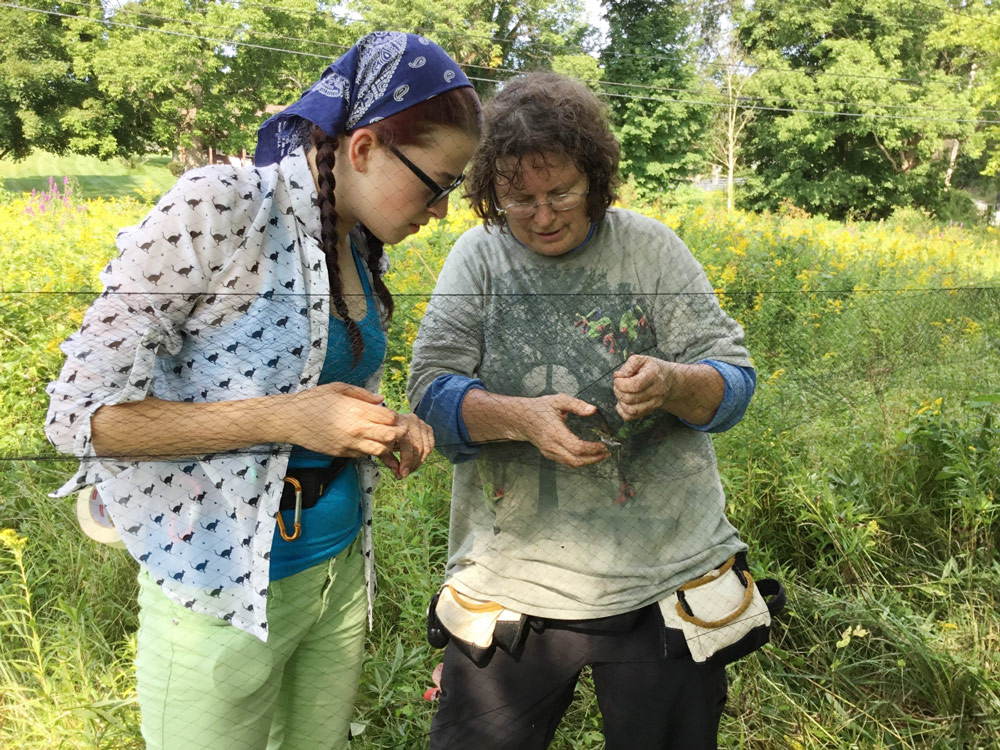
NRCA Conservation Training Partnerships, Lillian Steinmayer and Laurie Doss (CTP participants; Marvelwood & Kent Land Trust). © L. Cisneros, UConn NRCA
Katchen Coley Award for Excellence in Land Conservation
Dennis L. Kern, Esq - President, Berlin Land Trust
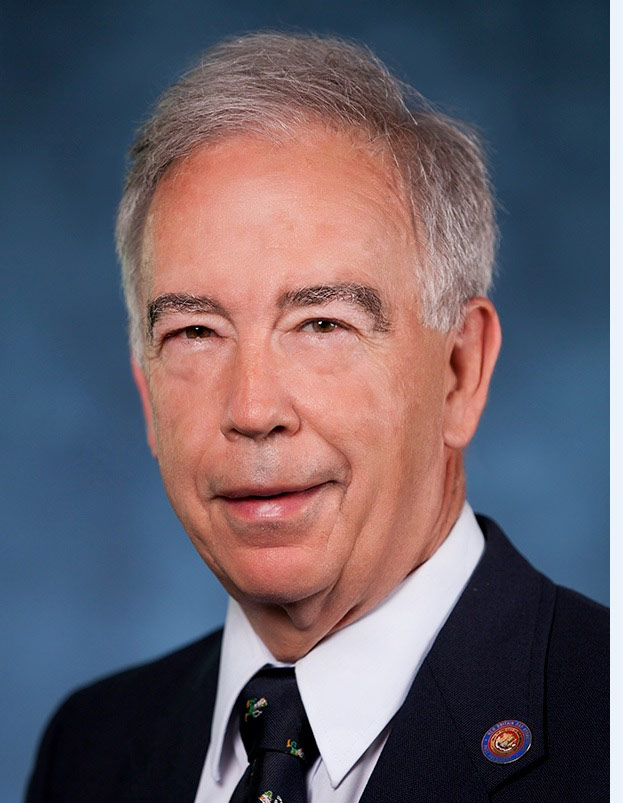
Dennis L. Kern, Esq.
@ Berlin Land Trust
Dennis has been and continues to be a committed, consistent, long-term and determined advocate for the conservation of open space and wetlands. He is the founding member of the all-volunteer Berlin Land Trust (BLT) in February 1988, a continuous member for 32 years and President since 1997. Dennis was directly involved with the acquisition of all 43 open space land parcels currently held in perpetuity by the Berlin Land Trust with total combined acreage of 396.
Dennis has provided pro bono legal services to the Berlin Land Trust for all land acquired by Title (39 parcels) and Conservation Easement (4 parcels). These services are immensely generous and have enabled the acquisition of new land parcels by means of the resultant cost savings. Legal services included title searches and preparation of documents for closings with BLT represented by Dennis. He has initiated an educational incentive by means of payment of cost by the Berlin Land Trust for the state sponsored training of Commissioners for the Town of Berlin Inland Wetlands & Watercourses Commission. This training significantly increases the knowledge of a commissioner to evaluate applications.
Throughout the years, Dennis has attended many, many meetings for the Inland Wetlands & Watercourses Commission as well as the Planning and Zoning Commission for selective applications, personally evaluating the environmental and open space impact of these applications. Expert third party consultants with cost were engaged by the Berlin Land Trust to provide technical review with recommendations to eliminate or mitigate negative impacts included with the original applications. These reviews by the BLT have substantially enhanced the applications with regard to the environment, open space and wetlands preservation. Note that this action currently continues.
Dennis championed and advocated tirelessly with the Town of Berlin Inland Wetlands & Watercourses Commission to increase the width of buffer zone between the delineated wetlands boundary and new adjacent residential or commercial development. This sustained effort would have been a further protection of wetlands.
He provided the initial impetus and sustained the effort for the submittal of an Open Space and Watershed Land Acquisition (OSWA) state grant application to acquire 47 pristine acres on Lamentation Mountain in Middletown. Dennis developed a clever and creative acquisition structuring with the land owners for the purchase by title, which enabled the Berlin Land Trust to pursue the OSWA state grant. The same owners agreed to link the bargain sale purchase of an 11.5 acre land parcel also on Lamentation Mountain to the BLT application for the state grant. They entered into a legal contract for the 47 acres and agreed to the elapsed time necessary for notice of award results. Berlin Land Trust was successful and an OSWA grant was awarded during January 2020. The Connecticut Forest and Park Association has intentions to re-route a portion of the Blue-Blazed Trail through this land parcel that will simplify and enable the trail to be more readily hiked.
Dennis advocated the prevention of the expansion of the Tilcon quarry into the New Britain watershed. The result was a major environmental victory.
Dennis collaborated directly with the Town of Berlin for many additional open space land acquisitions as the “broker” or intermediary between the town and land owner. This collaboration, that included long-term cultivation of potential land donors, preserved valuable properties for the benefit of all Berlin residents that were beyond the reach of funding by the Berlin Land Trust. This includes the former Meribrite Girl Scout Camp (45 acres) and the Dr. Chotkowski property (70 acres) which are now connected and include a trail system with other open space in the Hatchery Brook Conservation Area.
Among his many other roles, Dennis has also provided major input for the Town of Berlin’s “2003 Plan of Conservation and Development" as well as instituted the $500 Cancellarini Scholarship Award that is presented annually to a graduating senior at Berlin High School. This long-term award to honor a generous benefactor has occurred for twenty-three (23) years since 1996 and is given to a student that will elect a college major in environmental studies. Dennis is also the owner of the law firm Kern & Kern, LLC located in Berlin.
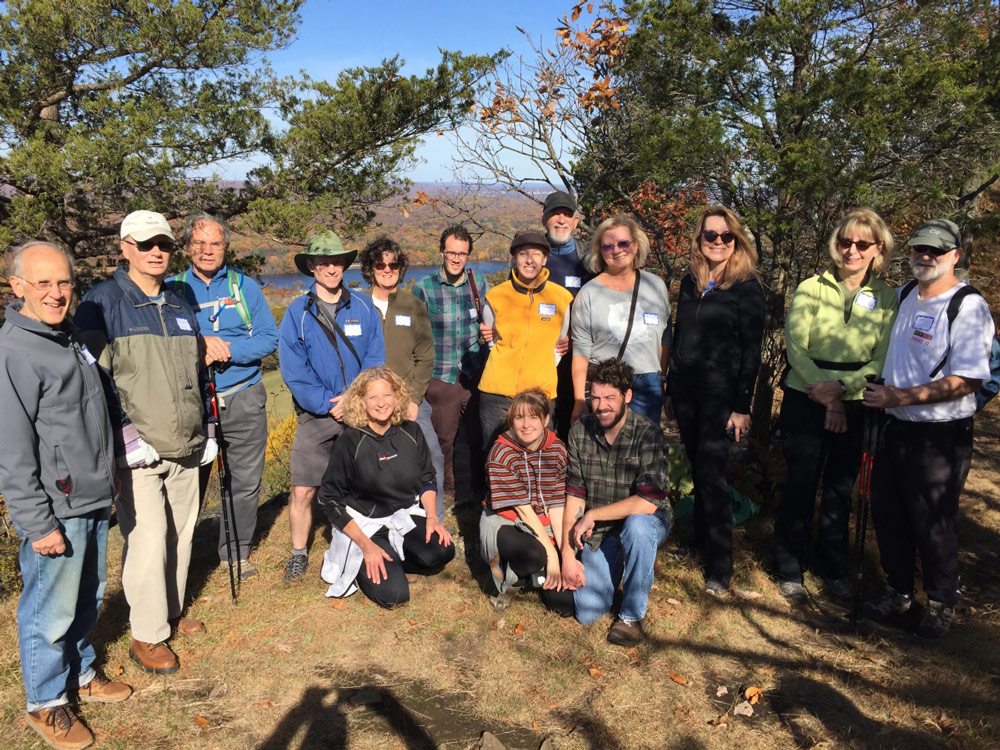
Group hike across the Lamentation ridgeline.
© Berlin Land Trust
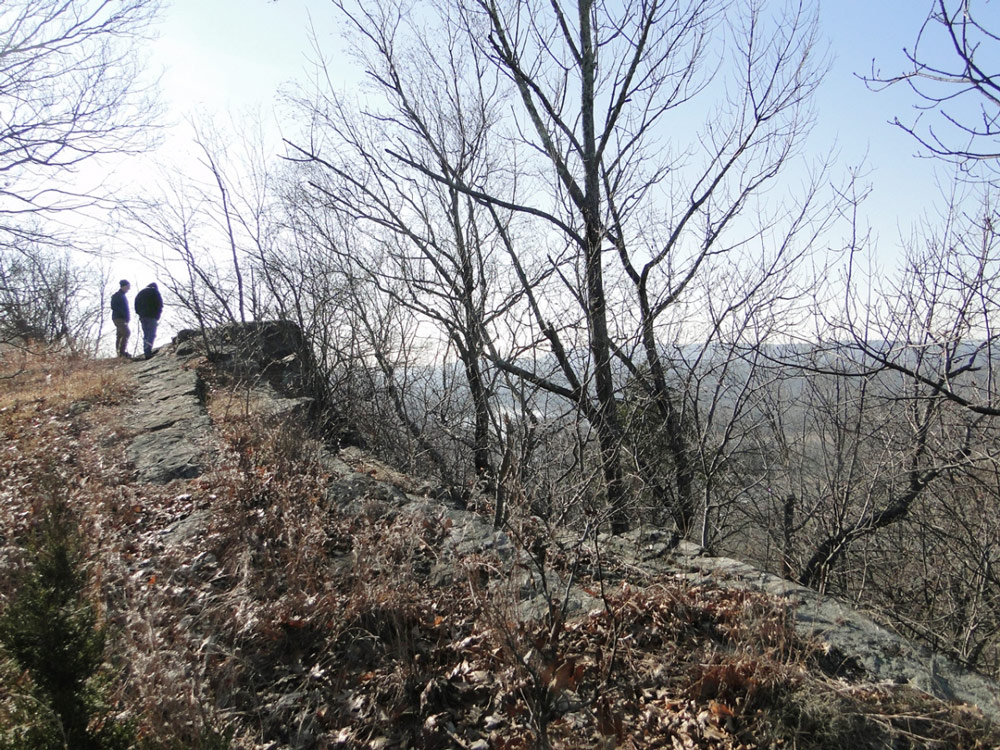
Southwest Summit view from Lamentation Mountain.
© Berlin Land Trust
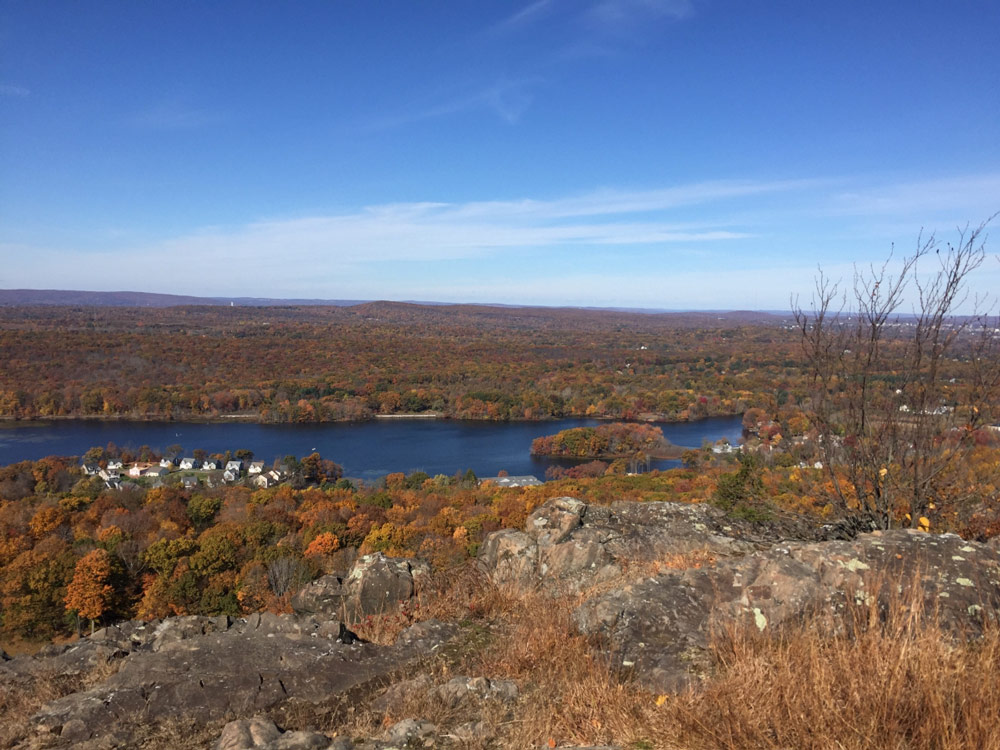
View from the top of Lamentation Mountain looking at Silver Lake.
© Berlin Land Trust
2020 Connecticut Land Conservation Council Conservation Hero
Kevin Case - President and CEO, Mohonk Preserve
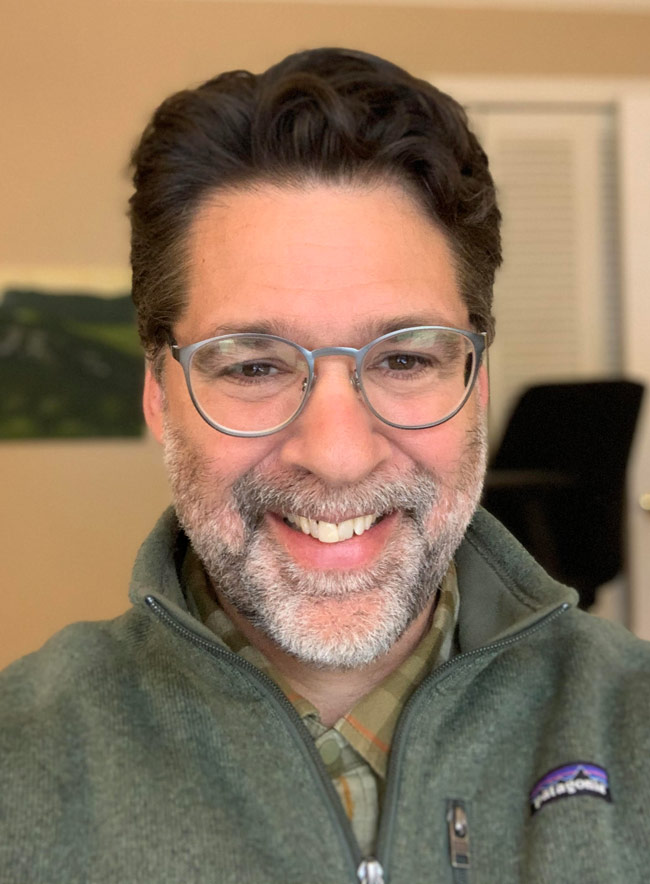
“Land trusts often feel they are sailing on uncertain waters, with the obligation to never leave the ship. If one finds oneself on such a journey, you want a very steady hand on the tiller, to guide the way, avoid the rocks, and chart a course. No one I have met in the field of land conservation is calmer, more measured, clear and reassuring than Kevin Case.” – Bob Canace
If you think about Connecticut’s land trusts today, words like “vibrant” or “exciting” often come to mind. Just 15 years ago, words like “sleepy” or “potential” were more common. CLCC’s work and your personal dedication to your land trust have a lot to do with today’s optimism, and Kevin Case’s work with LTA and CLCC (often quietly, behind the scenes) has raised the bar for all of us.
Over the last 25+ years, Kevin has been dedicated to conservation in Connecticut. He started in 1994 at the Farmington River Watershed Association, worked for the National Park Service as a natural resource planner, and then he worked for the Land Trust Alliance from 2005 to 2020 where he ultimately was elevated to LTA’s Eastern Director of Field Programs. Along the way, he worked on studies that resulted in national designations for two of Connecticut’s gems — the New England National Scenic Trail and the Eightmile Wild & Scenic River — and played a foundational role in the growth and excellence of CLCC serving as Board Chair and then Treasurer.
With his trademark calm, active-engagement, and visionary leadership, Kevin has excelled at all levels in Connecticut, and though we are saddened that he has recently taken his many talents to become the President and CEO of the Mohonk Preserve in upstate New York, we want to recognize his outstanding career accomplishments here.
2020 Connecticut Land Conservation Council Lifetime Achievement Award
David Sutherland, Director of Government Relations
The Nature Conservancy - CT
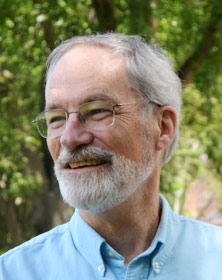
In 2002, David Sutherland was described in a Hartford Courant article as "the guy that's clearly seasoned, smart, brings a sense of humor to the table and is a credible player."[1] For those of us fortunate to have worked beside David, we could not have described him better.
A founding member of the Connecticut Land Conservation Council, David is retiring this year after serving 30 years as the Director of Government Relations with The Nature Conservancy’s Connecticut Chapter. David’s innumerable accomplishments in land conservation range from “doing deals”—including saving the epic 15,340 acres Kelda property—to leading the land trust community in lobbying for bonding and grant programs providing over $350 million in state funds to preserve natural lands across the state. David also was key to a coalition effort that successfully lobbied for the enactment of the Community Investment Act--bringing essential funding to state programs for open space, farmland, affordable housing and historic preservation.
Well-respected by legislators on “both sides of the aisle,” David was instrumental in the development of the state’s innovative streamflow regulations and the authorization of the Long Island Sound Blue Plan, and has lobbied for various climate change mitigation and resilience laws. He was a member of the State Invasive Plants Council, the Shoreline Preservation Task Force, and the State Water Plan Steering Committee.
For the past several years, David has also been a Diversity and Equity trainer and leader for The Nature Conservancy, co-leading the Connecticut Chapter’s DE&I Team for four years; and for TNC’s global organization, co-facilitating 3-day Engaging Across Difference workshops and co-leading a Men as Allies gender equity initiative. He has co-led diversity workshops annually at CLCC’s Connecticut Land Conservation Conference. He is also an accomplished singer/songwriter who can be heard crooning on our “etiquette in Connecticut.”
With his impending retirement, we extend our most sincere appreciation to David for all that he has done to make our corner of the earth cleaner, healthier, more beautiful and sustainable, for all of us, and for those who come next.
[1] “The Man Behind the Land Deal”, The Hartford Courant (April 29, 2002)
